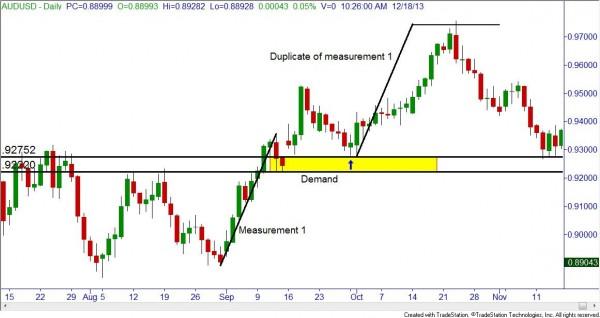Hello traders! As I mentioned in my last newsletter, I was fortunate enough to observe Justin Krebs teach our three day Market Timing Class a few weeks ago. During that class (and in every class I personally teach) the discussion of “market manipulation” came up. Market manipulation can be defined in numerous ways, but for this discussion we’ll just assume that some institutions have a distinctly unfair advantage in the marketplace. This can be through the high frequency trading computers that may have their servers co-located a few feet from the exchange servers, trading with inside information, or even the ability to nudge the market enough to “run stop loss orders.”
With these (and a few others), some new students and traders look to the market as too risky or manipulated, just not “fair.” With this knowledge, some students will refuse to participate in the markets by sitting in cash or merely buying the SPY ETF and calling it a day. While buying the SPY at the right times and managing that position the way we teach in our class can certainly give you an advantage, I believe that knowing and accepting the manipulation is a perfectly acceptable alternative.
When the issue of fairness in the markets is brought up in class, I generally bring up the subject of gambling in Las Vegas or even playing poker with friends. The vast majority of games in Vegas offer the individual gambler no advantage whatsoever; the house nearly always has the odds in their favor. Yet every year hundreds of thousands of people go to Vegas and gamble, all knowing the odds are against them! Is this foolish? If they are going to Vegas to earn a living, for the majority it is. This is much like trading. If you treated trading like most gamblers treated their trips to Vegas, your career would be a short one! What about the blackjack players who know how to count cards? (This is where numerical values are assigned to certain cards, and when a certain “score” is reached, the player can have a small statistical advantage over the house.) Over time, the proficient card counter can actually earn a living playing blackjack. This gambler/trader has accepted the rules of the game, but has learned to be patient and time their bets to make money. This is much like a profitable trader! We patiently wait for the proper set-ups to occur, and when they do, we take the trade! If the cards don’t play out, the blackjack player takes his loss and moves to the next hand. The profitable trader does the same thing; our stop gets hit for a small loss, and we wait for the next trade. Long term trading is nothing like the story of the man who went to Vegas and put all of his money on one spin of the roulette wheel. He had a less than 50:50 chance of making his money back! Professional traders limit their risk to a small percent of their account on a particular trade, often 1-3% of their account, much like professional gamblers.
Another issue of the “fairness” of trading comes about regarding the losses that other traders take. Specifically, if we believe that a drop into a demand zone is where new traders will look to sell, we look to buy. If we expect to make money on the trade, very often the person on the other side of the trade will lose money. Some new students believe that this is taking advantage of someone else, even taking their money. And then they feel sad for the new trader. Baloney! Does the house in Vegas feel sad when hundreds of new gamblers walk in their front door every day?
Hardly. If I sat at a poker table with 5 of the top professional poker players on the planet with $50,000 in my hand, would they tell me to walk away, that they would end up probably taking all of my money? Hardly. They would look at me just like the house looks at new gamblers-merely a source of income, nothing else.
We aren’t forcing anyone to take trades in the wrong places. Our job as traders is to make money by taking trades in the right places. Just as a professional gambler knows when to place bets, we know where to place trades.
Back to the manipulation conversation. While there is certainly an amount of that going on, the great thing about what we teach is that the “footprints” of the big money institutional orders are mostly immune to the small wiggles of the manipulators. If large banks/multi-national corporations are moving the market for days, weeks, even months at a time, they are unconcerned about a small handful of pips moving in the opposite direction. By learning to spot these footprints, we can ride the waves that these institutions make in the market.
In the following AUDUSD daily chart, a gap up followed by a sharp move higher is probably an indication of where a large pile of institution orders is sitting. At the blue arrow, an easy long position could have been entered. Should we feel sorry for the novice who sold short down there, after a 250 pip pullback, into a demand zone? Hardly! In fact, you should feel like a philanthropist. If someone wants to sell there, you are merely helping them do what they want by providing a buy order for them to trade against. Philanthropy is a good thing, right?
By the way, I did a nifty little measurement trick on this chart. I measured from the low to the high of one move in the market, and duplicated it to measure a possible target for another move. No, this is not a proper Elliott Wave pattern, but it is just an example of how the market loves symmetrical moves. Kind of neat how that works out sometimes. Want to see more of these? Come to class!
So what is the point? Yes, the market is stacked against you. Yes, you can refuse to participate and earn your .0001% at your bank by staying in cash. Or, you can trade like the house/institution and learn to make a few pips in this terrific market!
This content is intended to provide educational information only. This information should not be construed as individual or customized legal, tax, financial or investment services. As each individual's situation is unique, a qualified professional should be consulted before making legal, tax, financial and investment decisions. The educational information provided in this article does not comprise any course or a part of any course that may be used as an educational credit for any certification purpose and will not prepare any User to be accredited for any licenses in any industry and will not prepare any User to get a job. Reproduced by permission from OTAcademy.com click here for Terms of Use: https://www.otacademy.com/about/terms
Editors’ Picks

EUR/USD: Fed calm, ECB steady, but the Dollar still leads Premium
EUR/USD is still struggling to find real traction. The pair has tried to stabilise, but momentum keeps fading, leaving the door open to further weakness.

Gold: Falling US yields, geopolitics help XAU/USD hold ground Premium
Gold (XAU/USD) gained traction and climbed above $5,200, ending the fourth consecutive week in positive territory. The next round of US-Iran talks and crucial macroeconomic data releases from the US will be watched closely by market participants in the short term.

GBP/USD: Will Pound Sterling defend key 1.3450 support ahead of US jobs data? Premium
The Pound Sterling (GBP) entered a bearish consolidation phase against the US Dollar (USD), after having tested critical support near the 1.3450 level on several occasions.

Bitcoin: Another month of losses, and it’s been five
Bitcoin (BTC) price is stabilizing around $68,000 at the time of writing on Friday, but the Crypto King is poised to close February on a fragile footing, marking its fifth consecutive month of losses since October and a rare start to the year with back-to-back monthly corrections.

US Dollar: At a crossroads; Fed steady, tariffs in flux Premium
The US Dollar’s (USD) upward momentum from the previous week seems to have encountered a tough nut to crack in the 98.00 region, as measured by the US Dollar Index (DXY).
RECOMMENDED LESSONS
Making money in forex is easy if you know how the bankers trade!
I’m often mystified in my educational forex articles why so many traders struggle to make consistent money out of forex trading. The answer has more to do with what they don’t know than what they do know. After working in investment banks for 20 years many of which were as a Chief trader its second knowledge how to extract cash out of the market.
5 Forex News Events You Need To Know
In the fast moving world of currency markets where huge moves can seemingly come from nowhere, it is extremely important for new traders to learn about the various economic indicators and forex news events and releases that shape the markets. Indeed, quickly getting a handle on which data to look out for, what it means, and how to trade it can see new traders quickly become far more profitable and sets up the road to long term success.
Top 10 Chart Patterns Every Trader Should Know
Chart patterns are one of the most effective trading tools for a trader. They are pure price-action, and form on the basis of underlying buying and selling pressure. Chart patterns have a proven track-record, and traders use them to identify continuation or reversal signals, to open positions and identify price targets.
7 Ways to Avoid Forex Scams
The forex industry is recently seeing more and more scams. Here are 7 ways to avoid losing your money in such scams: Forex scams are becoming frequent. Michael Greenberg reports on luxurious expenses, including a submarine bought from the money taken from forex traders. Here’s another report of a forex fraud. So, how can we avoid falling in such forex scams?
What Are the 10 Fatal Mistakes Traders Make
Trading is exciting. Trading is hard. Trading is extremely hard. Some say that it takes more than 10,000 hours to master. Others believe that trading is the way to quick riches. They might be both wrong. What is important to know that no matter how experienced you are, mistakes will be part of the trading process.
The challenge: Timing the market and trader psychology
Successful trading often comes down to timing – entering and exiting trades at the right moments. Yet timing the market is notoriously difficult, largely because human psychology can derail even the best plans. Two powerful emotions in particular – fear and greed – tend to drive trading decisions off course.



